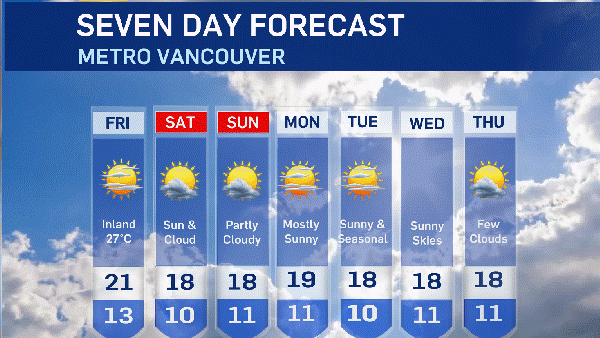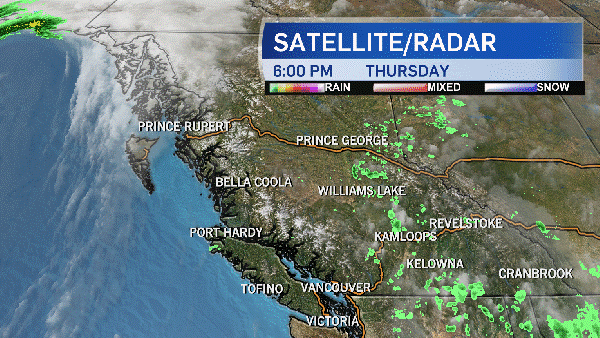Fraser Valley and Howe Sound residents can expect as much as 15 centimetres of snow to fall by Wednesday morning as bands of heavy flurries pass over parts of the province.
Snowfall warnings have been issued for both areas due to a storm system heading southeast from the Gulf of Alaska. Environment Canada said the regions can expect about five centimetres to fall on Tuesday, at times mixed with rain, but the heaviest snowfall will occur overnight and into Wednesday morning.
Drivers passing through the areas are warned to be prepared for conditions to change quickly as the snow accumulates.
The weather agency has also issued special weather statements for Metro Vancouver, the Sunshine Coast, part of Vancouver Island, Haida Gwaii and the north and central coasts as a result of the storm system.
Residents of Metro Vancouver and the eastern, northern and inland portions of Vancouver Island should prepare for bands of snow throughout the day and into the night on Tuesday, but Environment Canada says the total snowfall amount will vary. High elevation areas will be hit with about five centimetres of snow during the day and another five at night, the weather statement says. Lower elevation areas will see a combination of rain and snow, with no significant accumulation.
B.C.'s central and north coasts, and Haida Gwaii, should expect about five centimetres during the day, and a similar amount at night.
Many braved slushy streets during their morning commutes, though road conditions had improved by noon in most areas. During the commute home, drivers faced conditions varying from rain to snow to hail.
Anyone driving during the storm is warned to exercise caution in deteriorating conditions.
Tuesday is the third day of snow in a row for most of the affected regions. On Monday morning, at least 20 vehicles were involved in collisions on icy streets, especially on a treacherous stretch of Highway 1 near the Cape Horn interchange.
Environment Canada said Vancouver has had twice the amount of snow this season compared to the average winter, but that this is only the 18th snowiest on record.
Still, the weather comes with a cost for municipalities. The City of Coquitlam budgets $750,000 for snow removal, but has spent more than $2.6 million over 2016 and 2017.
The District of North Vancouver typically spends between $500,000 and $600,000 each winter on snow and ice removal, but this year its estimated cost is $1.8 million.
Officials say taxpayers shouldn't take a hit for the added costs, which are expected to come from the district's contingency fund.
With reports from CTV Vancouver's Shannon Paterson and Penny Daflos




























